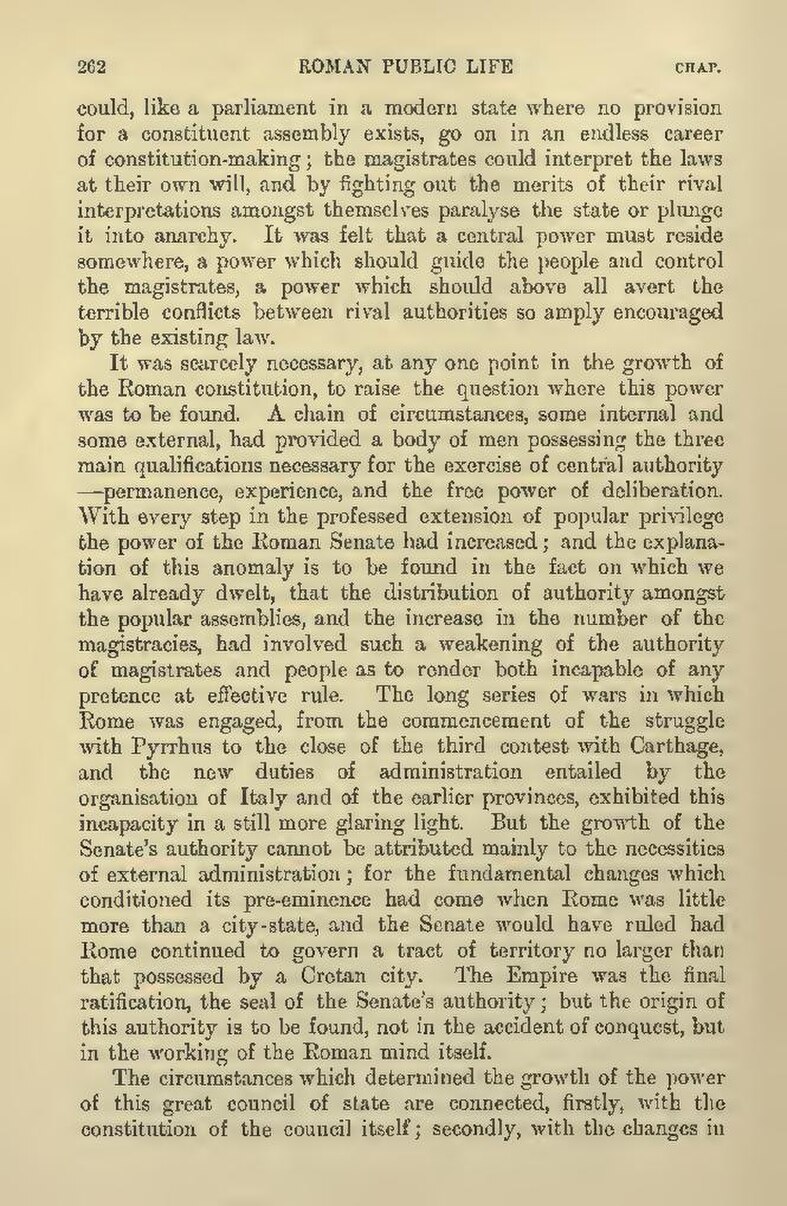could, like a parliament in a modern state where no provision for a constituent assembly exists, go on in an endless career of constitution-making; the magistrates could interpret the laws at their own will, and by fighting out the merits of their rival interpretations amongst themselves paralyse the state or plunge it into anarchy. It was felt that a central power must reside somewhere, a power which should guide the people and control the magistrates, a power which should above all avert the terrible conflicts between rival authorities so amply encouraged by the existing law.
It was scarcely necessary, at any one point in the growth of the Roman constitution, to raise the question where this power was to be found. A chain of circumstances, some internal and some external, had provided a body of men possessing the three main qualifications necessary for the exercise of central authority—permanence, experience, and the free power of deliberation. With every step in the professed extension of popular privilege the power of the Roman Senate had increased; and the explanation of this anomaly is to be found in the fact on which we have already dwelt, that the distribution of authority amongst the popular assemblies, and the increase in the number of the magistracies, had involved such a weakening of the authority of magistrates and people as to render both incapable of any pretence at effective rule. The long series of wars in which Rome was engaged, from the commencement of the struggle with Pyrrhus to the close of the third contest with Carthage, and the new duties of administration entailed by the organisation of Italy and of the earlier provinces, exhibited this incapacity in a still more glaring light. But the growth of the Senate's authority cannot be attributed mainly to the necessities of external administration; for the fundamental changes which conditioned its pre-eminence had come when Rome was little more than a city-state, and the Senate would have ruled had Rome continued to govern a tract of territory no larger than that possessed by a Cretan city. The Empire was the final ratification, the seal of the Senate's authority; but the origin of this authority is to be found, not in the accident of conquest, but in the working of the Roman mind itself.
The circumstances which determined the growth of the power of this great council of state are connected, firstly, with the constitution of the council itself; secondly, with the changes in
